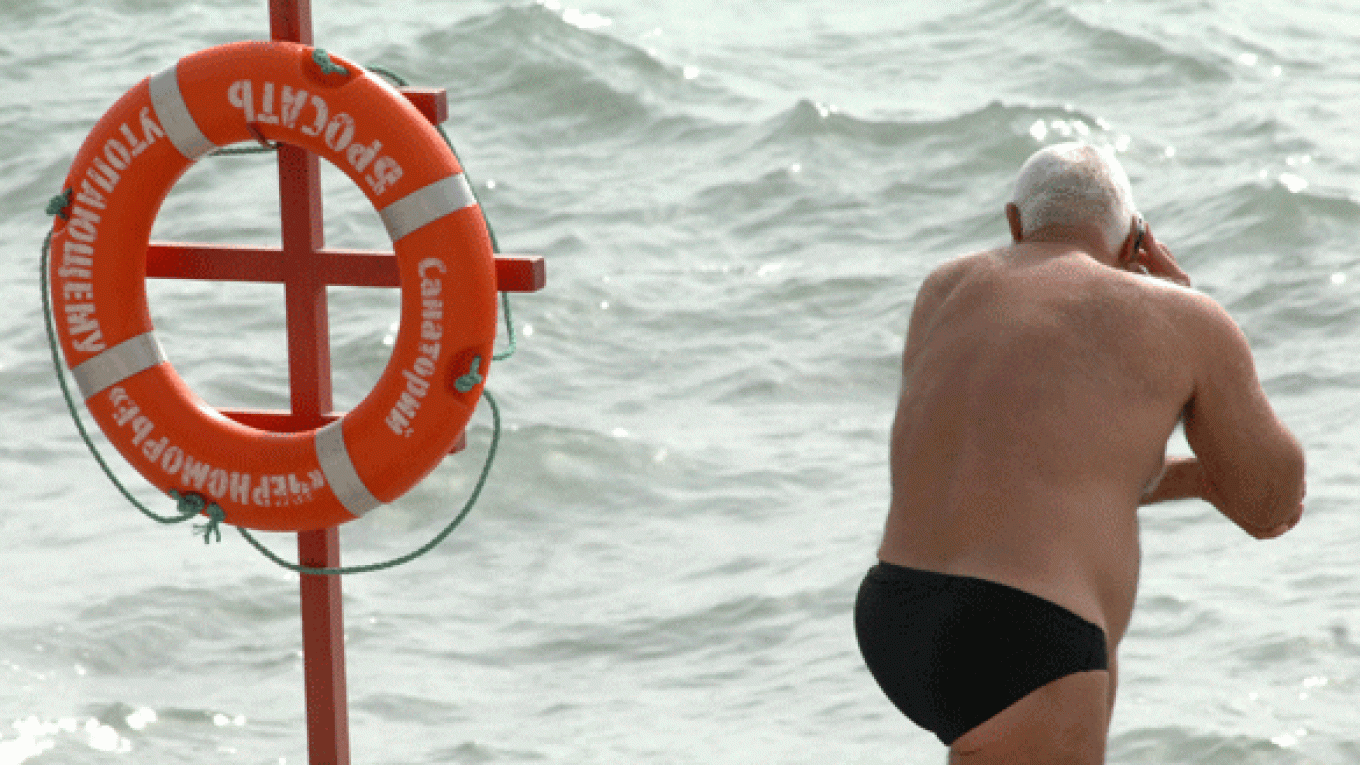Demand on the Sochi hotel market should more than triple in the next three years to keep sales at the current level, as the number of high-quality rooms in the city will increase dramatically ahead of the 2014 Winter Olympics, a consulting company said Monday.
Sochi's hotel sales declined from 48 percent of the overall room number in 2007 to 32 percent in 2010, and the number of visitors required to keep them at the current level should increase to 3.2 million a year from an average of 1 million a year in 2007 to 2010, said Marina Smirnova, senior vice president of Jones Lang LaSalle Hotels.
The annual number of nights booked by the visitors should increase from the current 9 million to 16 million, she told reporters at the company's Moscow office.
According to a program for city development ahead of the Olympics that was approved by the government in early 2008, Sochi will have about 20,000 new rooms in three- to five-star hotels to be built by 2014 — a significant increase compared with just 1,700 high-quality rooms in 2007, when the country's hotel market was on the rise, Smirnova said.
Among the latest projects to be built before the Olympics is a new tourism complex worth $600 million developed by Renova StroyGroup.
The complex, located in Imereti Lowland near the main Olympic sites, will include a three- to four-star hotel and an apartment hotel, with the overall number of rooms totaling 3,600, as well as shopping and entertainment centers, restaurants and other facilities, Renova said last month.
Construction is supposed to be completed in June 2013, and the hotels will be managed by Rezidor Hotel Group, Renova said in a statement.
A number of international hotel operators, such as Marriott and Hilton — whose representatives have come to Moscow to attend a hotel investment conference that opened Monday — also plan to open hotels in Sochi.
The government hopes that preparation for the Winter Olympics will turn Sochi into an attractive resort with developed infrastructure.
If the city did not win the Olympic capital status in 2007, it would hardly get such a level of development "in the next 100 years," with significant funding set aside in the federal budget to upgrade local infrastructure, Prime Minister Vladimir Putin said earlier this month.
The government plans to spend 304 billion rubles on Olympic construction through 2014, and Sochi Mayor Anatoly Pakhomov said in May that private investment in the project accounted for 700 billion rubles.
Meanwhile, Sochi needs serious rebranding to ensure growth in demand for the newly built hotels, Smirnova said.
The city might see an increase in visitors inflow from 2013 to March 2014, but demand is likely to decline after the Olympics are over, she said, providing two possible scenarios for the city's hotel market development after the games.
According to one scenario, demand could return to the initial level — as in Atlanta and Salt Lake City, which hosted Olympics in 1996 and 2002, respectively, Smirnova said.
The other scenario involves turning the city into a popular tourist destination, but for this to happen the major challenge for the federal and local governments is to develop alternative segments of the tourism industry.
"As a sea resort, Sochi has no potential to become an international destination," Smirnova said.
Sochi, which is currently popular among domestic travelers and whose tourism industry thrives only during the high season, lasting for just a few months, could grow as a ski resort, as well as a destination for business and gastronomy tourism, following the example of popular European resorts, she said.
"No one visits the Riviera just to lie on the beach. However, hotel sales are rather good due to the development of the event tourism, shopping and wine tours," Smirnova said.
A Message from The Moscow Times:
Dear readers,
We are facing unprecedented challenges. Russia's Prosecutor General's Office has designated The Moscow Times as an "undesirable" organization, criminalizing our work and putting our staff at risk of prosecution. This follows our earlier unjust labeling as a "foreign agent."
These actions are direct attempts to silence independent journalism in Russia. The authorities claim our work "discredits the decisions of the Russian leadership." We see things differently: we strive to provide accurate, unbiased reporting on Russia.
We, the journalists of The Moscow Times, refuse to be silenced. But to continue our work, we need your help.
Your support, no matter how small, makes a world of difference. If you can, please support us monthly starting from just $2. It's quick to set up, and every contribution makes a significant impact.
By supporting The Moscow Times, you're defending open, independent journalism in the face of repression. Thank you for standing with us.
Remind me later.






